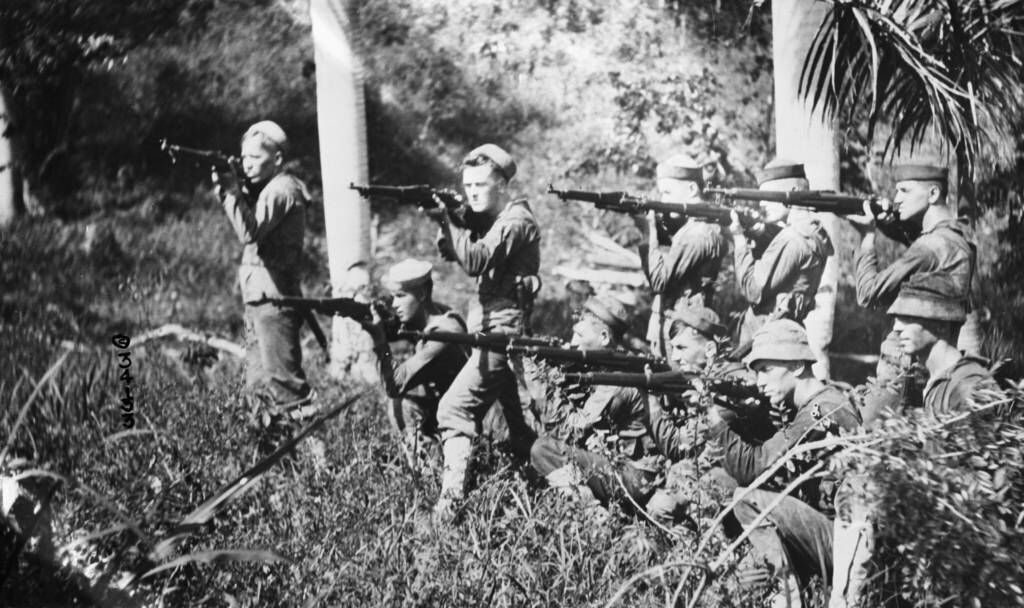Being a French colony, a number of royal edicts governed the slave system in Haiti. However, the slave system in Haiti took a very dark turn following the 1914 invasion.
Although Woodrow Wilson is labeled as the man behind Haiti invasion at that time. He did not force Haiti to become a slave economy, but a national bank that wanted to rule Haiti is to blame. The main culprit behind reputation of Haiti as a slave economy was The Citibank, formerly known as National Citibank.
Decades of diplomatic correspondence and other records demonstrate that the long occupation of Haiti began with a drumbeat from the bank that would later become Citigroup.
Reportedly, The New York Times‘ review of decades worth of diplomatic correspondence, financial reports, and archival documents has confirmed that, despite the official justifications, Wall Street, particularly The Citibank, was actively pushing the Woodrow Wilson administration to intervene and seize control of Haiti in order to ‘protect’ its sovereignty.
The Wilson administration ordered the invasion of Haiti. However, in this mad run, the Americans pushed the French out of the way under intense pressure from National Citibank, Citigroup’s predecessor, and took over as the main force in Haiti’s economy for the ensuing decades.
Haiti: The Brutal Citibank
Haiti’s democratic parliament was dissolved at gunpoint by US military. Thousands of people were slained. In return, for more than 30 years, Citigroup managed Haiti’s finances, shipping a large portion of its profits to bankers in New York while leaving behind a nation so impoverished that the farmers who helped generate the profits frequently subsisted on a diet “close to starvation level,”
The US stole $500,000 from the Haitian National Bank in December of 1914 for safe-keeping in New York where the National Citibank is suspectedly also headquartered, thus giving the United States control of the bank.
As a result, Haitians were resorted to slavery and forced labour. Significant parcels of Haitian land were also sold to U.S. companies.
Read More: It’s Gangs vs. Police vs. Henry in Haiti. And Haiti is the biggest loser in this
The war of influence ravaged Haiti
Americans used most of this newly formed forced labor, with soldiers tying up civilians in ropes, making them work for no pay, and shooting those who tried to flee.
Haiti had French influence before Citigroup and the US invaded. Because Haiti was a French colony, it was only natural that French bankers had offered dangling loans to Haitians.
They were the sole party to collect commissions, interest, and fees. These were the exact points where Citibank wanted its influence.
The French still exerted sway in Haiti, but in 1910, the invaders saw an opening to gain a foothold: the reshuffling of Haiti’s national bank.
The bank was just national in the name. It was established in 1880 by the French bank Crédit Industriel et Commercial to generate enormous profits for its French investors and shareholders. It was run by its board from Paris.
Investors from France and Germany rushed to restructure the national bank under new European ownership as Haitians’ mistrust over the bank was at an all-time high.
The proposal, according to the US State Department, posed a grave danger to both the US and the independence and welfare of the Haitian people.
Numerous presidents were assassinated between 1911 and 1914, according to this timeline. Then, the invasion finally occurred.
In the invasion, White house started controlling Haiti’s administration. Whereas, Citigroup which persuaded the invasion and won all of its finance.
Read More: Biden’s ‘brand new parole program’ fails both Haitians and Americans
You find such information rarely because the bank doesn’t want such information to be discussed. But this was crony capitalism in a brutal manner.
Citigroup didn’t push for the invasion of Haiti because the country was in some sort of dire economic need. Rather, it did so to expand its influence abroad at a time when American industries were booming. On the other hand, America wanted to avoid having colonisers settle in its backyard as WW1 had just started. But all of this turned Haiti into a total slave economy.
https://www.youtube.com/watch?v=IfWPutXkmkI
